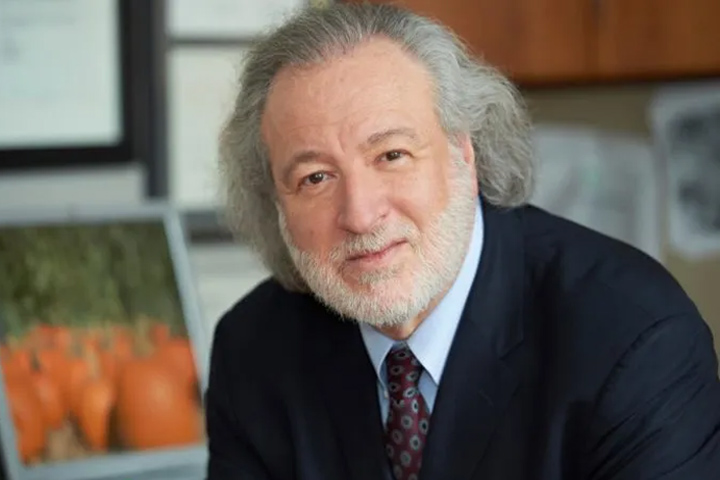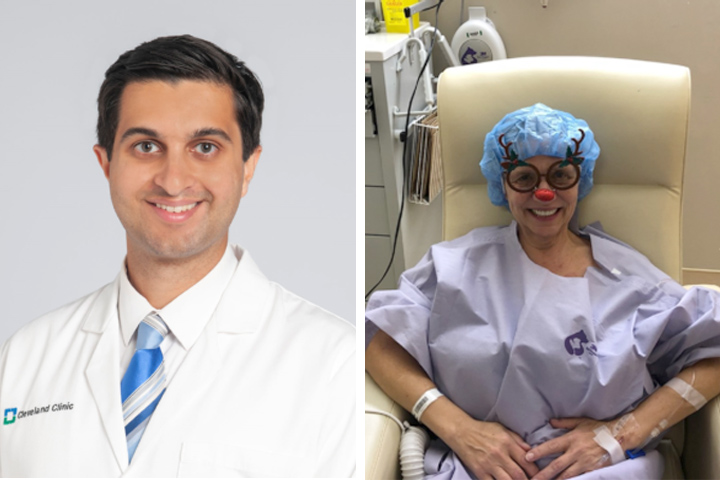Mental Health and Pancreatic Cancer

Dr. William Breitbart
When you have pancreatic cancer, convening a support team to address all of your needs is a key first step.
Unfortunately, it’s not uncommon for patients and caregivers to focus their efforts on the physical cancer at the expense of addressing the whole person. But according to William S. Breitbart, M.D., Chair of the Department of Psychiatry and Behavioral Sciences at Memorial Sloan Kettering Cancer Center (New York), bolstering patients’ mental health is just as critical. “It’s especially important for people who have pancreatic cancer to seek out experiences that give them a sense of meaning,” he says.
Prioritizing Mental Health
Doctors, caregivers, and even patients themselves tend to minimize the importance of mental health and emotional well-being while navigating a tough disease. But the reality is that when patients are demoralized, depressed, and anxious, it dramatically impacts their ability to complete a course of drug therapy and tolerate toxicities.
The good news: Patients can harness the power of their immune system by paying attention to what (and who) makes them feel a sense of awe and meaning. “That’s where psychosocial oncology comes in,” Breitbart explains. The goal of this decades-old discipline is to work in conjunction with conventional medicine to promote adherence to conventional oncologic treatment and potentially support the body’s ability to fight cancer by reducing stress levels, enhancing immunity, and modulating nervous system activity.
Studies link social support and spiritual assistance with more positive cancer outcomes. Even at the end of life, helping patients face death and make informed choices helps people hang on longer than continuing with intensive cancer treatment alone. So it’s no wonder a growing number of cancer centers offer a variety of mental health professionals to help patients achieve a calmer, more peaceful state as they navigate a challenging disease.
Becoming Emotionally and Mentally Healthy
Unfortunately, there’s no foolproof program to achieve mental and emotional wellness during cancer treatment. Instead, the goal is to come up with an arsenal of tools patients can use to support their mental health throughout their cancer journey. Four helpful ones to consider:
- Take a deep breath. Taking time out to breathe deeply—even for just a few minutes—can produce a slew of biochemical benefits for both mind and body. The body’s natural relaxation response kicks in. Your heart rate slows, your blood pressure steadies, and your body produces a state of calm that is conducive to healing.
- Focus on moments. With pancreatic cancer, people often focus on prognosis and chronological time. A more mentally healthy approach: Focus on meaning-filled moments. “Think about time in terms of creating moments and experiences that fill you with meaning and awe,” Breitbart says.
- Communicate your needs. Don’t be shy about telling friends and loved ones what you need to feel mentally healthy. Maybe you need your healthcare team to stop predicting your prognosis. Or maybe you need an hour alone in a dark room. Perhaps you would like all of your family members to come together for a quiet meal. Whatever your needs are, make sure you communicate them to the people who can support you.
- Don’t discount hope. With pancreatic cancer, hope is a hot commodity. “Hope gives the future a structure; it’s critical, and it’s never wrong,” Breitbart notes. “Even if you lose hope for a cure, you can still hope for a thousand other things, like staying connected to family members, living a life filled with meaning, and enjoying time with your family.”
A Guide to Mental Health Professionals
Dating back to 2008, the Institute of Medicine (now the National Academy of Medicine) issued a report saying that psychosocial support should be an integral part of cancer patient care. So how do you find professionals who are adept at guiding you through one of the most terrifying times of your life? Take advantage of the numerous options available to cancer patients by asking your oncologist for support services.
“The greatest challenge is to maintain the essence of who you are while you’re going through the experience of cancer,” Breitbart says. Mental health professionals can help you get there by exploring ways of being versus ways of doing. So, you may not be able to toss the ball in the park with your son, but you can still be a father by sharing your hopes and your dreams with your child.
Professionals who can help include:
- Social workers: Social workers provide a wealth of tools and resources to cancer patients. They can help secure lodging and transportation, access financial resources and support groups, even coordinate appointments with other mental health service providers.
- Grief counselors: Grief counselors have specialized training in loss. They can work with patients and family members to help process and heal after a loss. Loss doesn’t have to mean death; it can also include the losses patients face with changing roles in their relationships and careers.
- Chaplains: Chaplains address patients’ concerns around existential questions and spiritual pain and help patients process the emotions that accompany a cancer diagnosis. They’re also powerful advocates for patients and families, suggesting specific ways for your healthcare team to provide compassionate, holistic care that serves your needs.
- Psychologists: Psychologists are trained professionals who can help you learn to live your best life while coping with pancreatic cancer. In addition to helping you process difficult emotions, they can also provide you with tools to challenge negative thought patterns and engage with more positive ones.
- Psychiatrists: Psychiatrists can help you process the experience of cancer and prescribe medication to help you cope with depression and anxiety. “Pancreatic cancer triggers an inflammatory response in the body, which can lead to mood disorders,” Breitbart explains. Psychiatrists can prescribe certain antidepressant medications that directly target that inflammatory response.
- Specialized counselors: Patients with pancreatic cancer may benefit from a variety of support services, including art therapy, music therapy, animal-assisted therapy, and intimacy counseling. Each of these specialized services can help people make sense of their experience and achieve a sense of peace.
Feelings of sadness and depression are expected when you’re undergoing cancer treatment. Mental health professionals can help you respond to the experience in empowering and stress-reducing ways, so you’re better equipped to heal. “Until there’s a cure, there needs to be care,” Breitbart says.





